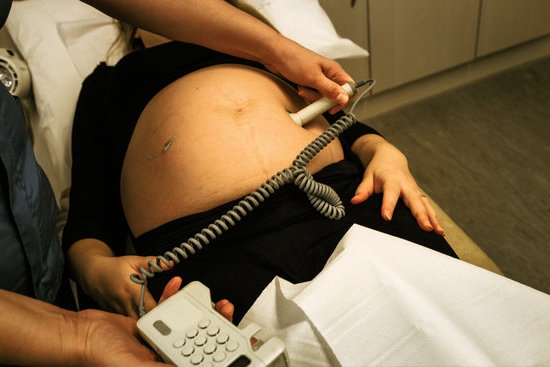Premature ejaculation is a common concern for many men, and the fear of causing an unintended pregnancy may add to the anxiety surrounding this issue. Understanding the relationship between premature ejaculation and pregnancy is important for both men and their partners. This article will explore the causes of premature ejaculation, how pregnancy occurs, and whether premature ejaculation can actually lead to conception.
Many individuals may wonder, “Can a premature ejaculation cause pregnancy?” This question will be addressed in-depth, debunking myths and providing scientific evidence on the topic. Additionally, we will delve into the science behind conception and fertility to better understand the likelihood of pregnancy resulting from premature ejaculation.
Furthermore, this article will provide valuable information on managing premature ejaculation and preventing unintended pregnancy. Tips for effectively handling premature ejaculation and exploring contraception options will be discussed. For those seeking professional help, options for treating premature ejaculation and family planning will also be explored. By addressing these topics comprehensively, readers can gain a better understanding of how premature ejaculation relates to pregnancy and how to effectively manage both concerns.
Understanding Premature Ejaculation
Premature ejaculation is a common sexual issue that affects men of all ages, with studies showing that it can impact up to 30% of the male population at some point in their lives. It is characterized by the inability to control the timing of ejaculation, leading to frustration and dissatisfaction for both partners. While the emotional and psychological effects of premature ejaculation are well-documented, many individuals may also wonder about the potential implications for pregnancy.
Causes and Factors of Premature Ejaculation
When it comes to understanding premature ejaculation, there are several causes and factors that can contribute to this condition. These may include:
- Psychological factors such as anxiety, guilt, or stress
- Biological factors such as hormonal imbalances or thyroid issues
- Erectile dysfunction or other underlying medical conditions
- Inexperience or infrequent sexual activity
It’s important for individuals experiencing premature ejaculation to assess these potential causes and seek professional help if needed. Understanding the underlying factors can be crucial in finding effective treatment options.
Effects on Fertility and Pregnancy
While premature ejaculation can affect a couple’s ability to conceive due to timing issues during intercourse, it is important to clarify that premature ejaculation alone cannot cause pregnancy. The release of sperm during ejaculation is necessary for fertilization to occur, and in most cases, premature ejaculation does not provide enough time for this process to take place.
Additionally, it’s essential for couples who are not actively trying to conceive to use contraception consistently and correctly in order to prevent unintended pregnancy. By exploring the various methods available and discussing them with a healthcare provider, couples can find an approach that best suits their needs while addressing any concerns related to premature ejaculation.
How Pregnancy Occurs
Premature ejaculation is a common sexual issue that affects many men at some point in their lives. It occurs when a man ejaculates sooner than he or his partner would like during sexual activity. One concern related to premature ejaculation is the possibility of causing an unintended pregnancy. Understanding how pregnancy occurs in relation to ejaculation can help individuals better navigate this issue.
In order for pregnancy to occur, a woman’s egg must be fertilized by a man’s sperm. This usually happens through sexual intercourse, where the man ejaculates inside the woman’s vagina. The sperm then travels through the cervix and into the uterus, where it can fertilize the egg if it is present. If fertilization takes place, the woman becomes pregnant.
When it comes to premature ejaculation, there is still a risk of pregnancy if ejaculation happens before proper contraception is used. Since sperm can be present in pre-ejaculatory fluid, there is a chance that it can still reach and fertilize an egg. Therefore, it is important for couples to use effective birth control methods if they are not trying to conceive.
| Aspect | Details |
|---|---|
| Risk of Pregnancy with Premature Ejaculation | Sperm can be present in pre-ejaculatory fluid, posing a risk of pregnancy if proper contraception is not used. |
| Fertilization Process | Ejaculation during sexual intercourse allows sperm to travel into the uterus and potentially fertilize an egg, leading to pregnancy. |
| Importance of Birth Control | Using effective contraceptive methods is essential for preventing unintended pregnancies when dealing with premature ejaculation. |
Debunking the Myth
Premature ejaculation is a common sexual issue that affects many men. There is a widespread myth that premature ejaculation can lead to pregnancy, causing unnecessary stress and anxiety for individuals and couples. However, it is important to debunk this myth and understand the scientific facts behind conception and fertility.
Debunking the Myth: Can Premature Ejaculation Cause Pregnancy?
1. Understanding the Male Reproductive System: The male reproductive system consists of the testes, where sperm is produced, and the penis, which delivers sperm into the female reproductive system during ejaculation. Premature ejaculation occurs when a man ejaculates sooner than he or his partner would like during sexual intercourse, but this does not necessarily increase the likelihood of pregnancy.
2. Timing and Fertility: It’s important to note that pregnancy can only occur if ejaculate containing sperm reaches the female reproductive system during ovulation – the release of a mature egg from the ovaries. While premature ejaculation may result in quicker delivery of semen, it does not have a direct impact on fertility or pregnancy unless it coincides with ovulation.
3. Factors Affecting Conception: Several factors influence conception, including timing, fertility status of both partners, and effective contraception use. Couples who are trying to conceive may need to pay more attention to their ovulation cycle and timing of intercourse. On the other hand, for those who wish to prevent pregnancy, understanding how contraceptive methods work is crucial in avoiding unintended pregnancies.
It’s essential for individuals and partners to educate themselves about how conception occurs and take necessary precautions for family planning. Whether seeking to conceive or avoid pregnancy, understanding fertility cycles and practicing safe sex can help alleviate concerns related to premature ejaculation and pregnancy.
The Science Behind Conception and Fertility
The process of conception and fertility is a complex and intricate one, involving the interaction of several factors within the female reproductive system. When addressing the question, “Can a premature ejaculation cause pregnancy?” it is essential to understand how pregnancy occurs and the role that ejaculation plays in this process.
Conception typically occurs when a man’s sperm fertilizes a woman’s egg after sexual intercourse. During ejaculation, millions of sperm are released into the woman’s reproductive system. These sperm then travel through the cervix and into the fallopian tubes, where they may encounter an egg for fertilization. If fertilization occurs, the fertilized egg will then implant itself in the uterus, leading to pregnancy.
It is important to note that timing plays a crucial role in pregnancy. A woman can only conceive during her fertile window, which is typically around ovulation – when an egg is released from her ovary. This usually occurs around 12-16 days before her next menstrual period begins. Therefore, if premature ejaculation happens outside of this fertile window, the likelihood of pregnancy occurring is significantly reduced.
Despite these details, it is still possible for pregnancy to occur if premature ejaculation happens near or during ovulation. Sperm can survive inside a woman’s reproductive tract for up to five days, meaning that if ovulation occurs shortly after premature ejaculation, there can still be a risk of pregnancy. To minimize this risk, individuals should consider using contraception consistently and correctly during sexual intercourse to prevent unintended pregnancies.
| Aspect | Details |
|---|---|
| Timing of Fertility Window | Around ovulation (approximately 12-16 days before next menstrual period) |
| Sperm Survival | Sperm can survive inside a woman’s body for up to five days |
Exploring the Effectiveness of Contraception
Offer Reliable Protection Against Pregnancy
, even in cases of premature ejaculation. Contraception not only provides a means to prevent pregnancy but also allows couples to plan when they want to start a family.
Types of Contraception
There are several types of contraception options that individuals and couples can consider. Barrier methods such as condoms, diaphragms, and cervical caps can be used to prevent sperm from reaching the egg. Hormonal birth control methods like birth control pills, patches, injections, and intrauterine devices (IUDs) work by preventing ovulation or thickening cervical mucus to block sperm from reaching the egg. Sterilization procedures for both men and women also offer long-term contraceptive solutions.
Effectiveness of Contraception
Is Highly Effective in Preventing Pregnancy
However, it’s important to note that no contraceptive method is 100% foolproof. The effectiveness of each method may vary depending on factors such as user compliance, timing, and individual health conditions. Couples should consult with healthcare professionals to understand the most suitable contraception method for their specific needs and circumstances.
Educating About Contraception
Can Help Address Any Concerns or Misconceptions
while ensuring that the chosen method aligns with both partners’ preferences and needs.
Tips for Managing Premature Ejaculation and Preventing Unintended Pregnancy
Understanding Premature Ejaculation
Premature ejaculation is a common sexual problem that affects men of all ages. It is characterized by the inability to delay ejaculation during sexual intercourse, leading to feelings of distress and frustration. There are various factors that can contribute to premature ejaculation, including psychological issues such as anxiety or stress, as well as physical causes like hormonal imbalances or abnormal reflex activity of the ejaculatory system.
Practicing Techniques for Control
One effective way to manage premature ejaculation and reduce the risk of unintended pregnancy is through practicing techniques for control during sexual intercourse. This can include techniques such as the start-stop method, where the individual pauses sexual activity when they feel close to ejaculation, allowing them to regain control before continuing. Additionally, the squeeze technique can also be helpful, involving applying pressure to the base of the penis just before ejaculation to temporarily reduce arousal.
Communication With Your Partner
Open communication with your partner about premature ejaculation is essential for managing the condition and preventing unintended pregnancy. Discussing any concerns or challenges related to sexual performance can help alleviate anxiety and pressure, creating a more supportive environment for both partners. Furthermore, working together to explore alternative methods for intimacy beyond traditional penetrative sex
Seeking Professional Help
In conclusion, while the fear of premature ejaculation causing pregnancy may be a concern for some individuals, it is important to understand the science behind conception and fertility. Pregnancy occurs when sperm fertilizes an egg during ovulation, and it requires more than just ejaculation to happen. Therefore, it is unlikely for premature ejaculation alone to result in pregnancy.
However, for those who are struggling with premature ejaculation and are concerned about unintended pregnancy, there are various options for managing this issue and preventing conception. Seeking professional help from healthcare providers such as urologists or sex therapists can provide individuals with effective treatment options such as behavioral techniques, medications, or counseling to address the underlying causes of premature ejaculation.
Furthermore, in addition to managing premature ejaculation, it is essential for individuals and couples to explore and utilize effective contraception methods to prevent unintended pregnancy. By understanding and utilizing contraception effectively, individuals can take control of their reproductive health and family planning decisions. Ultimately, by seeking professional help and being proactive about managing premature ejaculation and contraception, individuals can achieve better sexual health outcomes and peace of mind regarding unintended pregnancy.
Frequently Asked Questions
What Are the Odds of Getting Pregnant From Premature Ejaculation?
The odds of getting pregnant from premature ejaculation are actually quite high, as it only takes a small amount of sperm to fertilize an egg. If ejaculation occurs near the vaginal opening, there is a real risk of pregnancy.
How Common Is Pregnancy From Pre Ejaculation?
Pregnancy from pre-ejaculation is not uncommon at all. While the concentration of sperm in pre-ejaculate is lower than in a full ejaculation, it can still lead to pregnancy if it enters the vagina during unprotected intercourse.
Can a Guy Release Sperm Without Feeling It?
Yes, it is possible for a guy to release sperm without feeling it. This can happen due to various factors such as decreased sensitivity, certain medical conditions, or even just lack of awareness of when pre-ejaculation occurs during sexual activity.

Welcome to my fertility blog. This is a space where I will be sharing my experiences as I navigate through the world of fertility treatments, as well as provide information and resources about fertility and pregnancy.





